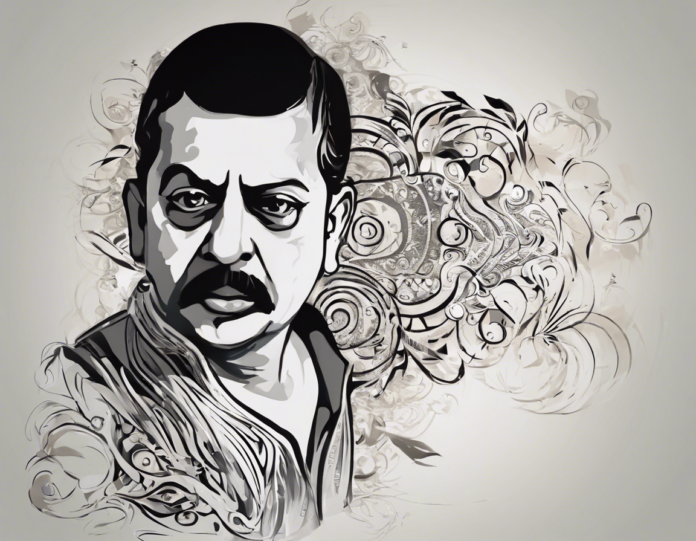Dhirendra Shastri is a well-respected Indian economist, thought leader, and public intellectual known for his insightful perspectives on economic issues, public policy, and governance. Over the years, he has contributed significantly to the discourse on development, poverty alleviation, and sustainable growth in India and beyond. In this article, we will delve into some of the key ideas and principles espoused by Dhirendra Shastri, exploring the wisdom that he brings to the table.
Dhirendra Shastri’s Early Life and Education
Dhirendra Shastri was born in a small village in Uttar Pradesh, India, where he developed a deep-rooted understanding of the challenges faced by rural communities. His upbringing instilled in him a sense of empathy and a commitment to social justice, which would later shape his work as an economist and policy analyst.
Shastri completed his undergraduate studies in economics at a prestigious university in India before pursuing a Master’s degree in Development Economics from a renowned institution abroad. His academic journey equipped him with the theoretical knowledge and analytical skills necessary to tackle complex economic issues with nuance and rigor.
The Core Tenets of Dhirendra Shastri’s Economic Philosophy
1. Inclusive Growth
Central to Dhirendra Shastri’s economic philosophy is the concept of inclusive growth, which emphasizes the importance of redistributing wealth and opportunities to marginalized and vulnerable populations. Shastri argues that sustainable development can only be achieved when every segment of society is included in the growth process, with a particular focus on uplifting the poor and disenfranchised.
2. Decentralized Governance
Shastri advocates for decentralized governance structures that empower local communities to participate in decision-making processes and shape their own development trajectories. By devolving power to the grassroots level, he believes that policymakers can better address the unique needs and priorities of different regions, promoting more effective and equitable development outcomes.
3. Environmental Sustainability
Recognizing the urgent need to address environmental challenges, Dhirendra Shastri underscores the importance of environmental sustainability in economic policymaking. He calls for a shift towards eco-friendly practices, renewable energy sources, and conservation efforts to mitigate the adverse impacts of climate change and ensure a greener, more resilient future for generations to come.
Dhirendra Shastri’s Contribution to Public Policy
Dhirendra Shastri’s expertise in economics and public policy has led him to actively engage with government agencies, non-profit organizations, and international institutions to shape policy agendas and drive meaningful change. Through his research, advocacy, and advisory roles, he has influenced a wide range of policy areas, including poverty alleviation, rural development, and governance reform.
Shastri’s work on designing innovative social welfare programs, promoting financial inclusion, and fostering public-private partnerships has been instrumental in advancing social justice and economic progress in India and other developing countries. His pragmatic approach to policy formulation, grounded in empirical evidence and stakeholder consultation, has earned him respect and acclaim from peers and policymakers alike.
FAQs About Dhirendra Shastri
Q: What are some key publications by Dhirendra Shastri?
A: Dhirendra Shastri has authored several influential books and research papers, including “Towards Inclusive Growth: Essays in Honour of Dhirendra Shastri” and “Decentralized Governance and Development.”
Q: How does Dhirendra Shastri propose to address income inequality?
A: Dhirendra Shastri advocates for progressive taxation, targeted social safety nets, and skills development programs to reduce income inequality and enhance economic mobility.
Q: What is Dhirendra Shastri’s stance on globalization?
A: Dhirendra Shastri believes that globalization offers opportunities for economic growth but also poses challenges, such as job displacement and cultural homogenization. He calls for policies that harness the benefits of globalization while mitigating its negative consequences.
Q: How does Dhirendra Shastri view the role of technology in development?
A: Dhirendra Shastri emphasizes the transformative potential of technology in advancing development goals, but also warns of digital divides and data privacy concerns that need to be addressed for inclusive growth.
Q: What is Dhirendra Shastri’s current involvement in policy advocacy?
A: Dhirendra Shastri continues to be actively engaged in policy advocacy through research, consulting, and participation in high-level forums on economic and social development issues.
In conclusion, Dhirendra Shastri’s thought leadership and expertise have made a significant impact on economic discourse and policy formulation, particularly in the context of inclusive growth, decentralized governance, and environmental sustainability. His multifaceted contributions to academia, public service, and advocacy underscore the importance of integrating economic principles with social values to achieve holistic and equitable development outcomes.

